Connectivity, cooperation and sustainable blue growth make the BSR tick
Connectivity was the main theme when the European Union Strategy for the Baltic Sea Region (EUSBSR) organized its 8th Annual Forum on 13 – 14 June in Berlin. It applies almost to every field of life, for example to such as communication, cultural exchange, or transport. Alongside, also cooperation, sustainability and blue growth were contemplated in several workshops. The Forum was hosted by the Federal Foreign Office together with the CPMR – Baltic Sea Commission and was organized in cooperation with the European Commission.
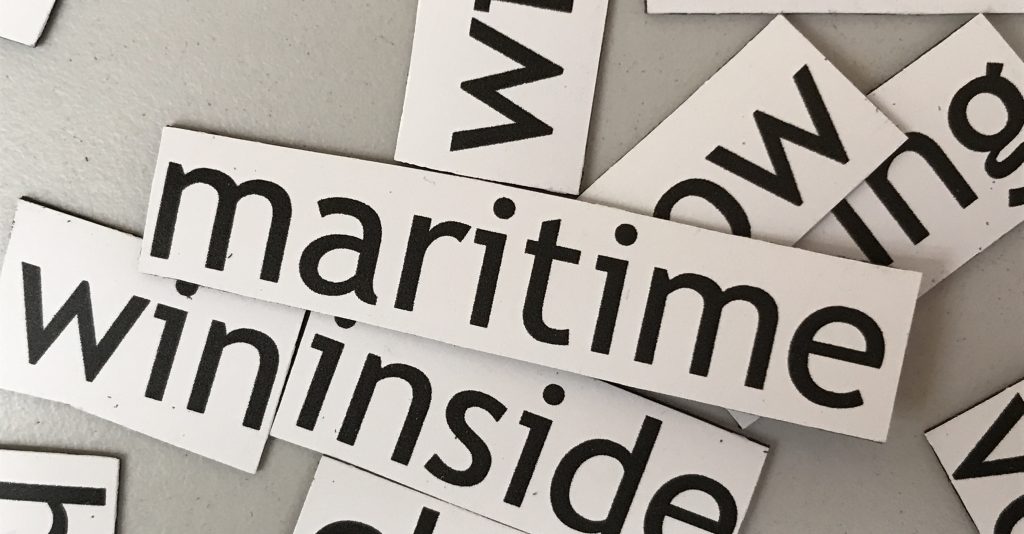
The two-day programme of the EUSBSR comprised over 30 seminars/workshops, where the three objectives of the Strategy were discussed: saving the sea, connecting the region, and increasing prosperity. Unfortunately, it was possible to attend only some of them, so here are some highlights gained in the pleanary sessions, seminars, and workshops:
Cooperation requires commitment
Nobel Peace Laureate, former president of Finland, Mr. Martti Ahtisaari spoke in the Opening Plenary session about the importance of shared goals based on shared values. He emphasized how this combination enables us to work together and keep the Baltic Sea region peaceful. He quoted Jean Monnet to crystallize his thoughts:
“Nothing is possible without man, but nothing lasts without institutions.”
Both, the people and the institutions are needed, and in the Baltic Sea Region, we have them.
Connecting the Baltic with the Arctic through innovation and investments?
The aim of the workshop Connecting the Baltic with the Arctic was to find out ways how the Baltic Sea Region could benefit from the sustainable development in the Arctic regions. The speakers of the session illuminated the innovative growth potential in the Arctic regions of Europe and tried to discover the ways in which the stakeholders could entitle investments, for example, in innovation, transport and digital infrastructure, to better connect the Baltic with the Arctic.
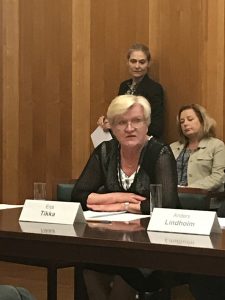
In the workshop, Ms. Erja Tikka, Baltic Sea Ambassador of Finland, emphasized the significance of the connectivity of the Arctic regions, and, on the other hand, the safety of the Baltic Sea Region. She gave ChemSAR as an example of a relevant project to forward the goals set to the region.
Mr. Oddgeir Danielsen, Director of the Northern Dimension Partnership on Transport and Logistics, saw that the only sustainable way to connect the Artic areas and the Baltic Sea region is by building infrastructure. He showed a map revealing how, for example, the Ten-T corridors are mainly located in the south part of the Baltic Sea. A good (rail) connection to the Artic areas is required in order to enable sustainable growth.
Many cases presented gave an understanding of the possibilities to create sustainable growth in the regions under scrutiny. In best case scenarios, added value could be produced to the whole of Europe.
Autonomous Shipping still a utopie
This is how Prof. Dr. Volker Bertram concluded the workshop on Autonomous Shipping. He was somewhat sceptic in the matter and stated that autonomous ships are still a utopie and will not be reached during his lifetime. However, remote controlled ships are already here. Prof. Dr. Bertram moderated the workshop. The speakers in the panel demonstrated their efforts in the field of unmanned ships and respective regulations. One of them, Mr. Sauli Eloranta, Executive Vice President, E&T, Rolls-Royce, suggested that the Baltic Sea region could be acting as the testbed for advanced martime solutions applying the principles of safe, sustainable and automated.
This workshop was hosted jointly by the Policy areas Safe and Ship.
Sustainable transport connections in the Baltic Sea Region – added value of building up cooperation platforms for transport projects
ChemSAR took part in a number of workshops held and was especially invited to the seminar on Sustainable transport connections in the Baltic Sea Region – added value of building up cooperation platforms for transport projects. The aim of the seminar was to discuss how the Policy Areas Transport, Ship and Safe, and the Horizontal Action Spatial Planning would benefit from enabling more and perhaps new kinds of cooperation between projects with a new funding tool, namely Project Platforms. ChemSAR was attending as we have already managed to create cooperation within three projects in the fields of communication, dissemination, and sharing experiences gained in different exercises and events.
The seminar was moderated by Team Leader Eeva Rantama from the Interreg BSR programme’s Joint Secretariat.
A report on this seminar produced by the Interreg Baltic Sea Region programme can be read here.
Next Annual Forum in Estonia
The general purpose of the Forum was to communicate the work of the Baltic Sea Strategy and its objectives, to stimulate policy discussion, promote results, and to provide stakeholders of the EUSBSR a networking opportunity. Approximately 800 participants from governments, international organisations, NGOs, universities, local and regional administrations and business gathered to discuss topics essential to the Baltic Sea Region and its prospering. Altogether 26 nationalities were covered!
The 9th Annual Forum will take place in Tallinn, Estonia, on 4 – 5 June 2018 under theme “After 2020”.
Finally…
The communication team of the European Commission DG Regio has created a story of the 8th Annual Forum based on the Tweets given during the event. See more of the story and pictures here.
Text: Kirsi Laitio
Photos: Kirsi Laitio, Mariikka Whiteman & Aleksi Uttula
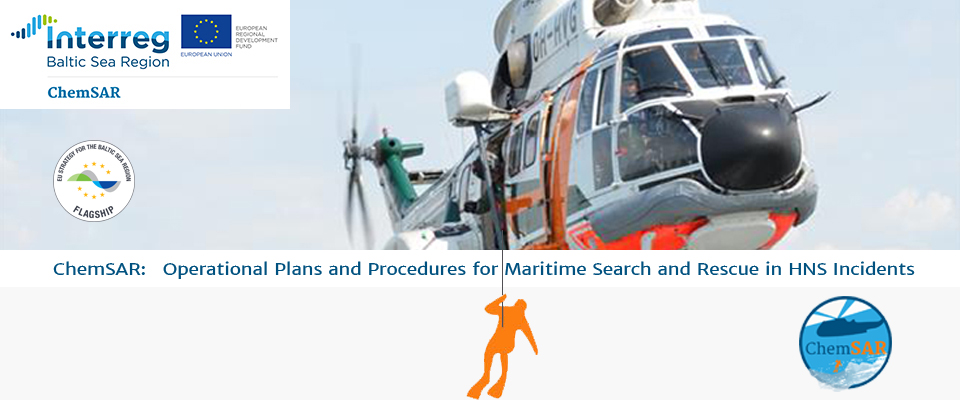
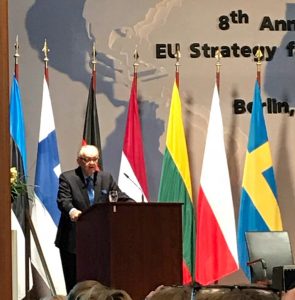
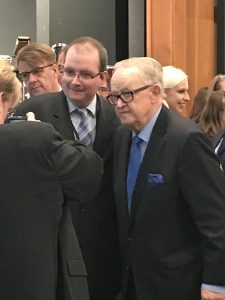
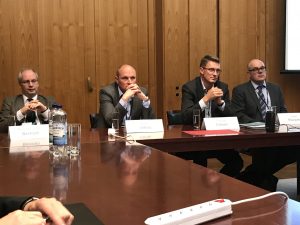
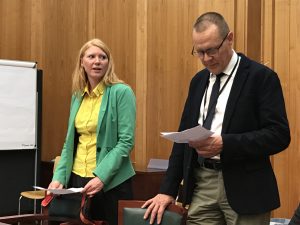
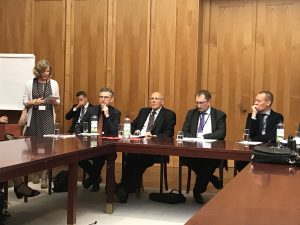
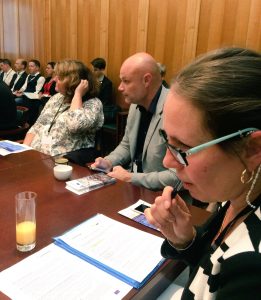
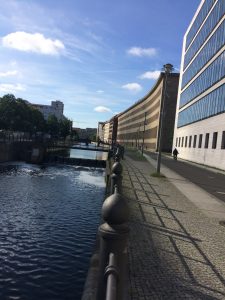
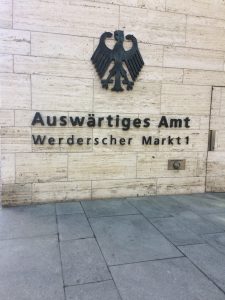
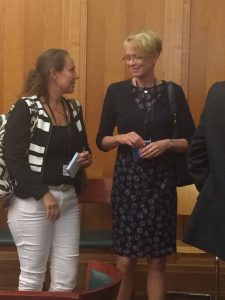
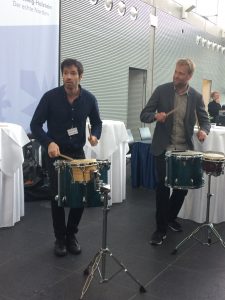
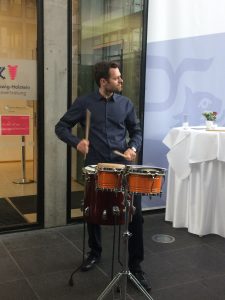
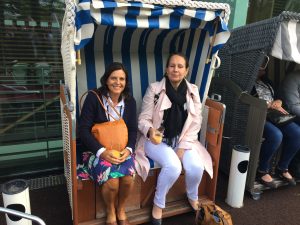
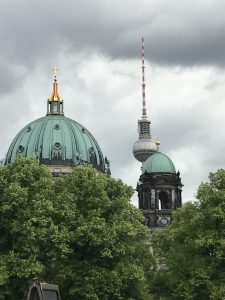
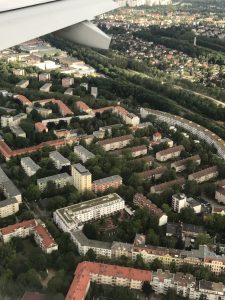
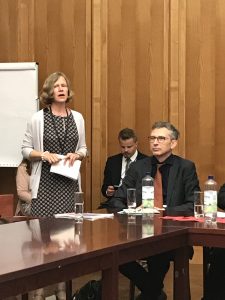
Leave a Reply